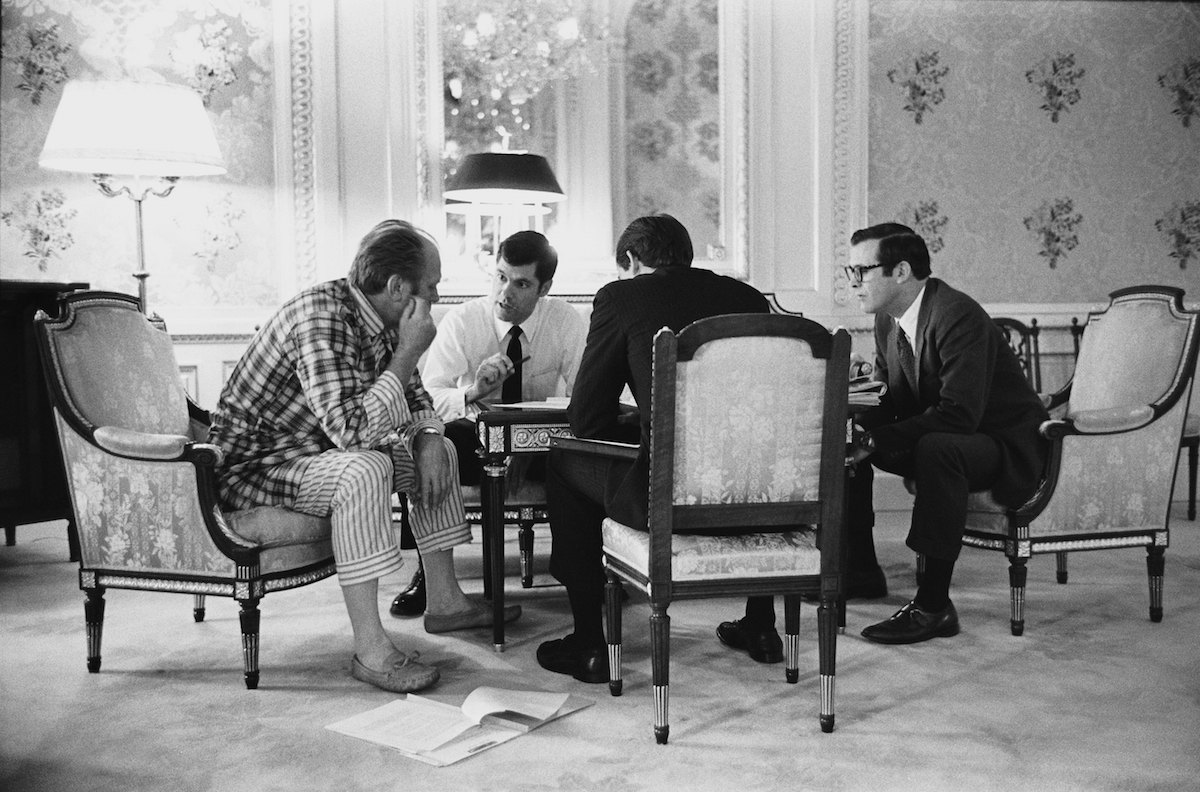
When U.S. President Barack Obama arrives in Japan on Thursday, as part of week-long trip to Asia, he will be on his way to becoming the first U.S. President to visit the city of Hiroshima, the site of the world’s first atomic attack in 1945. The emotionally charged event will build on the precedent set by President Gerald Ford’s visit to the East Asian country in the 1974, when he became the first U.S. President to visit Japan since that bombing killed more than 60 thousand people—and, in fact, the first ever to make an official visit to that nation.
Ford’s trip in November of 1974 was his first one abroad as President since replacing Richard Nixon earlier that year. Dwight Eisenhower had planned to over a decade before, but that trip had been cancelled due to unrest by Japanese leftists over the continued military presence of the U.S. in the country. As TIME reported in 1974, there remained a fear that such groups would do their utmost to disrupt Ford’s trip:
In 1960 the mammoth anti-American demonstrations were spearheaded by the Zengakuren, a tautly disciplined, powerful army of leftist students. The Zengakuren have since faded out of existence as those members who did not entirely forsake radical politics turned to terrorism. Now the leftists have splintered into numerous tiny and not very effective groups. Aside from staging an occasional bombing, they spend most their time in internecine street fighting Some regard themselves as Maoists, others call themselves “Guevarristas”; one organization, the “East Asian Anti-Japanese Armed Front,” seems primarily to oppose what it calls “a new brand of Japanese colonialism,” meaning Japanese business activities in Asia.
With that in mind, the Japanese government had 10 thousand policeman assigned to protect the President. This was in addition to 40 Secret Service men who scrutinized Ford’s planned itinerary, vetoing anything that was deemed “too dangerous”—like an exhibition baseball game between the New York Mets and a Japanese team.
MORE: Why It Took So Long for a U.S. President to Visit Hiroshima
At the time, both Ford and the Japanese Premier Kakuei Tanaka were struggling with mounting criticism of their leadership around the planned visit. Ford’s first months of presidency had been “blighted by raging inflation, deepening recession and…growing doubts about his ability to lead the nation,” TIME reported, while across the Pacific, Tanaka was already struggling with rebellion in his own political party, recession, inflation and an energy crisis when, that fall, a magazine accused him of “corrupt financial dealings and tax evasion.”
On Nov. 18, 1974, Ford’s Air Force One landed in Tokyo’s Haneda International airport. The president met with Emperor Hirohito before attending a formal banquet at the Imperial Palace on the following day. Ford also held talks with Tanaka about trade policy, mutual defense arrangements, “relations with Communist China, inflation and the energy crisis.” As TIME reported:
In addition, Tanaka sought a promise that the U.S. would not restrict food sales to Japan in the future, while Ford hoped to receive assurances that the Japanese Diet would ratify the nuclear non-proliferation treaty. After reciprocating with a dinner for Hirohito, Tanaka and other Japanese dignitaries on Wednesday evening, Ford planned to spend the next day touring Kyoto, Japan’s ancient capital and one of its most beautiful cities.
Towards the end of his trip, he made a speech at Japan Press Club, where he celebrated the alliance between the two nations and the success they had experienced at moving beyond the legacy of World War II.
Get your history fix in one place: sign up for the weekly TIME History newsletter
“I hope that my visit shall be the first of many by American Presidents,” Ford said. “I hope that the leaders of our two countries will follow the example that our peoples have already set, to visit each other frequently and freely as our nations move together to deal with the many common problems and concerns that will affect the lives of all our citizens and all humanity.”
More Must-Reads from TIME
- L.A. Fires Show Reality of 1.5°C of Warming
- Home Losses From L.A. Fires Hasten ‘An Uninsurable Future’
- The Women Refusing to Participate in Trump’s Economy
- Bad Bunny On Heartbreak and New Album
- How to Dress Warmly for Cold Weather
- We’re Lucky to Have Been Alive in the Age of David Lynch
- The Motivational Trick That Makes You Exercise Harder
- Column: No One Won The War in Gaza
Contact us at letters@time.com